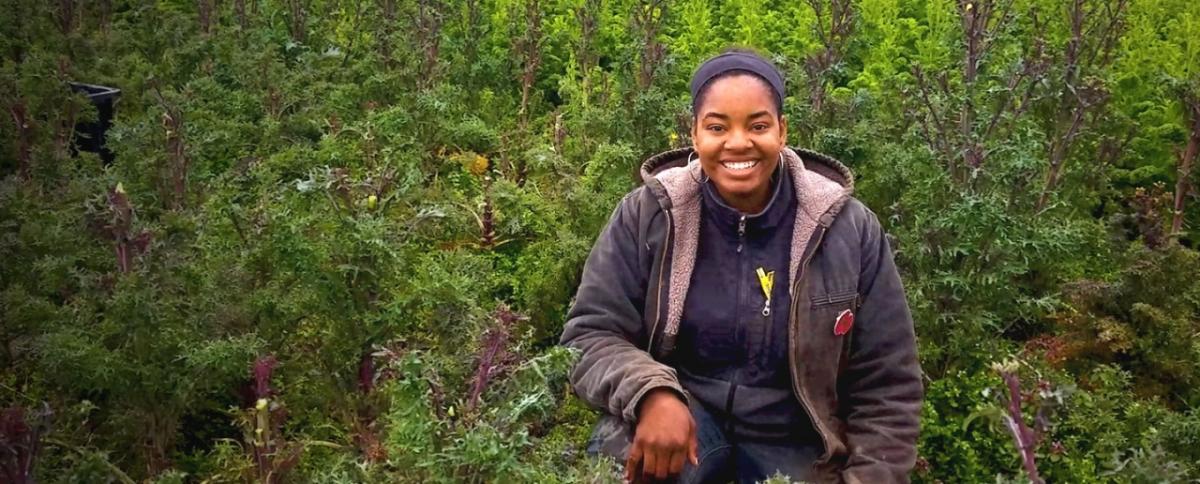Forget the City. These Millennials Are ‘Rethinking Rural’
Organizers in Washington are creating a national network of millennial leaders in rural areas, thanks to support from a nonprofit and Wells Fargo.

Forget the city. These millennials are ‘rethinking rural’
When Madeline Moore was 22 and wanted to open her own bakery, she chose not to follow her friends who left her hometown of Long Beach, Washington, to launch their careers in larger, urban areas.
Instead, Moore moved to Chinook, Washington, a 1-square mile spot in Pacific County near her hometown. Chinook’s population is small — only about 450 people live there — but it’s also the only place Moore thought she could be successful.
“I knew I had a following that would support me,” Moore said. “It was 100 percent because of the community. They came out in droves to support me. A friend let me use kitchen space at a hotel, and another friend let me use a storefront for a year. I would not have been able to do what I did in a large city. It wouldn't have been financially viable.”
Moore opened Pink Poppy Bakery six years ago. Now, at the age of 29, the millennial entrepreneur has since realized the benefits and challenges of working and living in a rural community. Though small towns can offer small business owners like Moore a support system of prospective customers and resources, they can also have issues such as poverty, a lack of employment opportunities, and limited access to health care.
Instead of facing these issues alone, Moore is working to create a network of leaders, especially other millennials like herself, in rural communities. The nationwide effort, Rethinking Rural, was created in 2017 to encourage rural leaders to promote growth and investment while remaining true to what makes rural communities special, unique, important, and resilient.
“I think we as rural communities work within our silos,” Moore said. “If we could work together, we would be unique in solving problems.”
Getting started
About a year and a half ago, Moore met with Malloree Weinheimer, 30, and Denise Pranger, who live and work in Port Townsend, Washington, a city with about 9,500 residents that’s about four hours northeast of Chinook. Weinheimer, who works in rural community development, and Pranger, the owner of a floral wholesale company, had invited Moore to their town for consulting advice about a local collaboration that works on food and farming projects. Moore knew Pranger because she serves on the board for Craft3, a local nonprofit that Moore’s father started, and met Weinheimer for the first time during her visit. What came out of their meeting was the inspiration for Rethinking Rural.
“We were seeing that what happens in rural communities is similar across the nation, but people don’t reach out or have a network to that,” Weinheimer said. “I think a characteristic of rural communities is doing things on your own. We wanted to create a network for sharing solutions.”
The three of them decided to host a symposium in March of about 50 people for young adults who had proven themselves in rural communities, whether as entrepreneurs, elected officials, educators, community organizers, farmers, or health care workers. However, they needed funding to pull it off. They reached out to Craft3, a nonprofit that provides loans to strengthen the resilience of businesses, families, and nonprofits in Oregon and Washington. Thanks to a $2,500 sponsorship from Craft3, a $25,000 grant from Wells Fargo, and a $1,000 sponsorship from Jefferson Land Trust, they were able to put on the symposium and provide some travel scholarships.
“We had previously supported Port Townsend as it created a strategy for becoming more sustainable, and we were proud to provide another grant for Rethinking Rural,” said Stephanie Rico of Wells Fargo Environmental Affairs. “Rethinking Rural is about the next generation taking a leadership role in their community and making the world better. They want to make a positive difference, and we want to support that.”
“Joy is really important to millennials, and I think rural communities offer that.”
What millennials love about going rural
Older generations, like Baby Boomers, are more likely than millennials to live in rural areas, according to the 2016 Zillow Group Report on Consumer Housing Trends (PDF). About 20 percent of millennial homeowners live in rural communities, according to the report. Almost half of millennial homeowners, or 47 percent, live in the suburbs, while 33 percent live in urban areas.
Millennials like Moore are hoping to buck that trend. Rural communities offer two characteristics she says are important to millennials: quality of life and affordability. These traits are important to Moore — and they’re important to some of her friends, like one who left a job with a major company to move to a rural area and start a business, solely for a better quality of life.
“Joy is really important to millennials, and I think rural communities offer that,” Moore said. “Over the last year or two, millennials seem to be getting more involved in politics and leadership, and it can be easier in rural communities. You feel you have an impact in a community of 2,000 versus 100,000 or more.”
But she knows there can be challenges, as well.
“I think if you don’t have a background of living in a small community, you can feel like you’re hitting your head against a wall because the status quo can be so engrained in society,” Moore said. “By connecting each other through Rethinking Rural, we can create that support network and share best practices.”
‘We didn’t want this to be just another conference’
The first Rethinking Rural symposium was held March 12-14 in Port Townsend with about 45 participants from Oregon, Idaho, Washington, North Carolina, Alabama, Minnesota, and California. Leaders discussed topics such as the importance of data, encouraging community diversity, empowering rural youth to invest, and technology access.
“We didn’t want this to be just another conference,” Weinheimer said. “We tried really hard to bring people from different sectors like health care, education, forestry, farming, and tourism. We invited people between the ages of 25 and 40 because, at that point, you’ve had experience with struggles and success.”
The founders plan to check in with participants every few months and create a newsletter to keep everyone in the loop about what others are doing. They also plan to have similarly sized symposiums in other parts of the country and a larger symposium in a couple of years.
“I think rural communities as a whole are vital to the health of our nation,” Moore said. “We need to invest in the health of small communities to have a successful nation. Millennials are going to be the next generation of leaders, so we have to give ourselves the skills to be successful and pass the torch to the next generation. We will be more successful if we do that in a planned and thoughtful way.”

